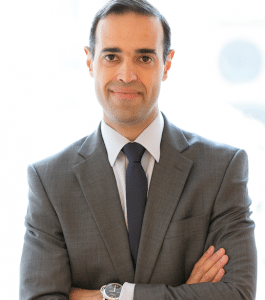By Jose Carvalho
For businesses today, transformation is a key ingredient for success. Whether it’s upgrading to the latest technology, evolving to meet new regulatory standards, or rethinking how global events shape trade and operations, inertia is not an option for senior leaders who want to steer successful ships.
This is important, as another change is on the horizon. And it’s one that may demand an even more far-reaching evolution in the way businesses operate, regardless of their size or sector.
According to some estimates, millennials will make up 75% of the workforce by 2025. This means that in the coming years, more millennials will rise to senior management roles and start to occupy the majority of seats at boardroom tables. With a whole new generation of professionals heading to the top, the transition from Gen X to millennial leadership is set to shake up the very foundations of business.
 At American Express we wanted to better understand how businesses will be affected when millennials take the helm. To do this, we commissioned Redefining the C-Suite: Business the Millennial Way – a piece of research that saw us speak to over 2,300 global leaders and millennial managers to find out what their priorities for the workplace and business leadership are – and more importantly, how they differ.
At American Express we wanted to better understand how businesses will be affected when millennials take the helm. To do this, we commissioned Redefining the C-Suite: Business the Millennial Way – a piece of research that saw us speak to over 2,300 global leaders and millennial managers to find out what their priorities for the workplace and business leadership are – and more importantly, how they differ.
Our research found that when millennials become leaders, the businesses they run will change dramatically. From the way they treat their workforce to how they pursue profit, millennials are set to redefine how organisations engage with their partners, customers, employees and shareholders.
With so much change to come, it is all the more important that current leaders are acting now to set their businesses up for success in the future. A huge part of this comes down to investment, and where businesses need to be prioritising their spending today to achieve the best results tomorrow.
So, how can finance directors help to millennial-proof their organisations and make this transition easier?
Avoid automation assumptions
With advances in automation technology progressing at lightning speed, it would be fair to assume that AI and automation will soon become the norm in the workplace.
But our research suggests that millennials are generally unwilling to fully automate the organisations they run. These future leaders – who will likely have an array of automation technology at their fingertips – are less likely to want to automate business functions than current leaders, their Gen X colleagues. Whether this is down to concerns about the impact rapid automation could have on jobs, or general scepticism about the value of automation over human resource, we could be facing an automation slow-down in the next five to ten years. Automation clearly has a place in the future of the business, but its adoption needs to be carefully thought out to avoid resistance from future generations.
Expect changing values to influence investment
Future millennial leaders want to run employee-centric businesses. When asked what the biggest challenges are to businesses of the future, the top answer given by millennials in our survey was paying employees fairly, closely followed by retention of talent.
We also found that millennials are likely to lead businesses that are driven by profit and purpose. While 76% of millennials think that in order to be successful in the future businesses will need to have genuine purpose, they are also more likely to agree that driving shareholder profit is important for successful businesses than their Gen X counterparts.
For finance directors looking to make smart investments for the future, they need to align how money is spent with the values driving businesses in the future. For millennial leaders, employee welfare will be a top concern, so it is important that FDs are looking at how they will evolve employee benefits and compensation.
FDs will also need to work with other senior leaders to identify, agree and measure alternative parameters for the success of businesses. In the future, this won’t just be about which company reports the biggest earnings, but demonstrating how the business is investing in people and giving back to the communities they are a part of. Our data clearly shows that millennials don’t just see the success of the business measured in pounds and pence.
Invest in flexibility
While millennials are set to disrupt leadership in business when they take the hot seat, the increasing retirement age means that it will become more and more common for different generations to work under one roof. CFOs will need to be mindful of this when investing to make the workplace a more productive one for the future.
Our research indicated that 83% of Gen X workers think that a good work-life balance is important, and flexibility is more important to Gen X-ers than millennials. Faced with an ageing workforce, it’s important that CFOs take note of this and consider technology that supports increased flexibility for older workers. In fact, American Express’ 2017 Global Business and Spending Outlook – which captured the mood and views of 100 of the most senior financial leaders in the UK – found that many are already doing this. At the start of this year nearly a quarter (24%) of FDs were planning to increase spending on mobile technology designed to promote remote working over the next 12 months.
While no organisation can fully predict the future, we do know that we can expect millennial leaders to change the way business is done. To make sure that they are set up for the future, it is crucial that FDs are investing in changes now – to ensure that the transition to the next generation of senior managers and directors is a smooth one.
Jose Carvalho, pictured above, is Senior VP and General Manager at American Express Global Commercial Payments Europe






Be the first to comment on "How finance directors can millennial-proof their organisations"